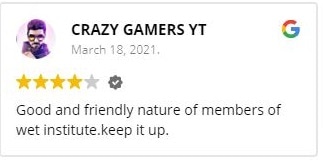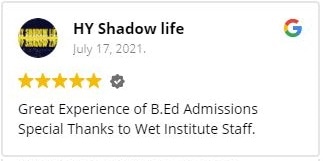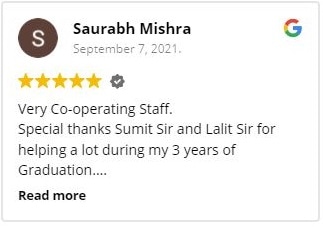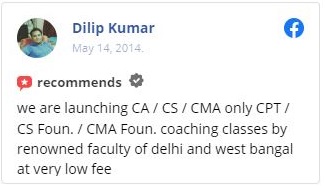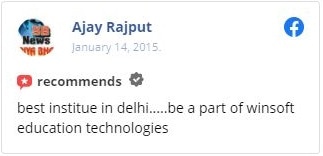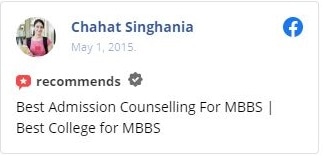Diploma in Special Education: Key Components, Career Opportunities, and Advantages
A Diploma in Special Education is a valuable qualification for educators seeking to make a significant impact on students with diverse learning needs and disabilities. This program provides essential skills and knowledge to create inclusive learning environments and implement effective teaching strategies.
Key Components of the Diploma in Special Education Program:
- Understanding Disabilities:
- This course covers various disabilities, including learning disabilities, autism spectrum disorders, and intellectual disabilities, and their effects on learning.
- This course covers various disabilities, including learning disabilities, autism spectrum disorders, and intellectual disabilities, and their effects on learning.
- Educational Psychology:
- Gain insights into developmental psychology and its relevance to special education.
- Gain insights into developmental psychology and its relevance to special education.
- Teaching Strategies:
- Learn about tailored teaching methods designed to meet the specific needs of students with disabilities.
- Learn about tailored teaching methods designed to meet the specific needs of students with disabilities.
- Individualized Education Plans (IEPs):
- Develop skills in creating, implementing, and evaluating IEPs for students.
- Develop skills in creating, implementing, and evaluating IEPs for students.
- Behavior Management:
- Master techniques for managing classroom behavior and fostering positive learning environments.
- Master techniques for managing classroom behavior and fostering positive learning environments.
- Assistive Technology:
- Explore tools and technologies that support learning for students with disabilities.
- Explore tools and technologies that support learning for students with disabilities.
- Collaboration and Communication:
- Enhance your ability to work with parents, educators, and specialists in the field of special education.
- Enhance your ability to work with parents, educators, and specialists in the field of special education.
- Practicum Experience:
- Engage in hands-on training within real educational settings, providing practical experience in special education.
- Engage in hands-on training within real educational settings, providing practical experience in special education.
Career Opportunities with a Diploma in Special Education:
- Special Education Teacher: Work in schools focusing on students with special needs.
- Resource Teacher: Offer additional support and resources in mainstream classrooms.
- Educational Consultant: Provide guidance on special education policies and practices to schools and organizations.
Advantages of Pursuing a Diploma in Special Education:
- Growing Demand: The increasing focus on inclusive education leads to a rising demand for qualified special education professionals.
- Impactful Work: Contribute significantly to improving educational experiences and outcomes for students with disabilities.
- Skill Development: Enhance skills such as empathy, problem-solving, and adaptability, valuable in various educational professions.
The eligibility criteria for a Diploma in Special Education
The eligibility criteria for a Diploma in Special Education can vary depending on the institution, but here are some common requirements:
General Eligibility Criteria:
- Educational Qualification:
- Typically, candidates should have completed their higher secondary education (12th grade) or an equivalent qualification.
- Some institutions may accept candidates with a Bachelor’s degree in any field.
- Minimum Marks:
- A minimum percentage in the qualifying examination is often required (commonly around 50% to 60%).
- Age Limit:
- Some institutions may have an age limit, but many do not.
- Entrance Exam:
- Certain institutions may require candidates to pass an entrance exam or interview as part of the selection process.
- Other Requirements:
- Submission of documents like identity proof, educational certificates, and possibly letters of recommendation or a personal statement.
- Submission of documents like identity proof, educational certificates, and possibly letters of recommendation or a personal statement.
Additional Considerations:
- It’s essential to check specific institutions for their unique requirements and any state or regional regulations that may apply.
Admission Process for a Diploma in Special Education
- Research Institutions
- Identify colleges or universities offering the Diploma in Special Education.
- Review their eligibility criteria, course details, and faculty profiles.
- Application Form
- Complete the application form for the chosen institution(s), often available online.
- Document Submission
- Prepare and submit necessary documents, including:
- Educational certificates (e.g., high school or higher education transcripts)
- Proof of identity (e.g., Aadhar card, passport)
- Passport-sized photographs
- Any entrance exam scorecards, if applicable
- Entrance Exam (if required)
- Some institutions may require you to take an entrance exam.
- Prepare according to the syllabus provided by the institution.
- Interview (if applicable)
- Be prepared for a personal interview, where you may discuss your motivations for pursuing special education.
- Merit List
- After assessing applications and conducting entrance exams/interviews, institutions typically release a merit list based on scores and qualifications.
- Counseling/Admission Offer
- Candidates on the merit list will be invited for counseling or notified of their admission status.
- Confirm your acceptance and pay any required fees.
- Enrollment
- Complete the enrollment process by submitting any additional documentation and paying tuition fees.
- Orientation
- Attend an orientation session to familiarize yourself with the program, faculty, and resources available.
- Start Classes
- Begin your coursework and engage with the curriculum.
Tips:
- Stay aware of application deadlines and requirements specific to each institution.
- Reach out to admissions offices if you have any questions or need clarification.
Curriculum for a Diploma in Special Education
Following are the subjects that are an integral part of the syllabus of D.Ed. in Special Education
Education In Emerging Indian Society | Regional Language |
Child Development And Learning | Mathematics Teaching |
Educational Psychology | Environmental Science Teaching |
Curriculum And Paedology | English Teaching |
Issues Problem With Secondary Education | Social Science Teaching |
ICT (Information And Communication Technology) | Physical Education |
Different Methods Of Teaching | Understanding Language And Literacy |
Art | Literature |
Teacher Identity And School Culture | General Science Teaching |
Environmental Studies Paedology | School Culture, Leadership Change |
7 Skills Of Microteaching | Work And Education |
Creative Drama, Fine Arts And Education | Physical And Emotional Health |
School Health And Education | Internship |
Skills Required for a Diploma in Special Education (D.Ed.)
Pursuing a Diploma in Education (D.Ed.) in Special Education requires a unique set of skills to effectively support students with disabilities and diverse learning needs. Here are some essential skills:
1. Empathy and Compassion
- Understanding the emotional and educational challenges faced by students with disabilities is crucial for effective teaching.
2. Patience
- Demonstrating patience while working with students who may require additional time to grasp concepts is vital in special education.
3. Communication Skills
- Effectively communicating with students, parents, and colleagues, including adapting language for different audiences, is essential in special education settings.
4. Adaptability
- Being flexible in teaching approaches to meet the varied learning styles and needs of students with disabilities is a key skill.
5. Problem-Solving Skills
- Developing creative solutions to overcome challenges in the classroom and improve learning outcomes for special needs students.
6. Classroom Management
- Implementing effective classroom management strategies to maintain a positive and productive learning environment for all students.
7. Collaboration Skills
- Working effectively with other educators, specialists, and support staff to create a comprehensive educational plan for students with disabilities.
8. Knowledge of Special Education Laws and Policies
- Understanding the legal frameworks and guidelines governing special education, including students’ rights, is essential for compliance and advocacy.
9. Assessment Skills
- Evaluating student progress through various assessment methods and adjusting teaching strategies accordingly to enhance educational outcomes.
10. Use of Technology
- Familiarity with assistive technology and tools that can enhance learning for students with disabilities.
11. Cultural Competence
- Recognizing and respecting the diverse backgrounds of students and adapting teaching methods to be inclusive for all learners.
12. Organizational Skills
- Effectively managing lesson plans, student records, and communication with families and other educators to ensure smooth operations in a special education classroom.
Scope and Future Advantages of D.Ed. in Special Education
Diverse Career Opportunities
- Graduates can pursue various roles, including Special Education Teacher, Resource Teacher, and Educational Consultant. These positions are in high demand across schools, educational institutions, and NGOs.
Growing Demand for Special Education Professionals
- With increasing awareness of the importance of inclusive education, there is a rising need for qualified professionals who can address the needs of students with disabilities.
Impact full Work
- Educators in special education play a vital role in improving the quality of life for students with disabilities, helping them achieve their educational and personal goals.
Opportunities for Further Studies
- A D.Ed. in Special Education serves as a foundation for advanced degrees, such as a Bachelor’s or Master’s in Special Education, allowing for specialization in areas like autism spectrum disorders, behavioral interventions, or educational psychology.
Professional Development
- The field of special education offers ongoing professional development opportunities through workshops, seminars, and certifications, allowing educators to stay updated on best practices and new research.
Collaboration with Diverse Professionals
- Working in special education allows for collaboration with a range of professionals, including psychologists, therapists, and social workers, enhancing your professional network and broadening your expertise.
Job Security
- As more educational institutions embrace inclusive practices, the job market for special education professionals is expected to remain robust, offering greater job security.
Skills Development
- The program equips educators with essential skills such as empathy, problem-solving, and adaptability, which are valuable not only in education but also in various professional settings.
Conclusion
Pursuing a Diploma in Special Education (D.Ed.) opens up numerous pathways for career advancement and personal growth. The demand for skilled professionals in this field is growing, providing a rewarding and impact full career that contributes significantly to society.

